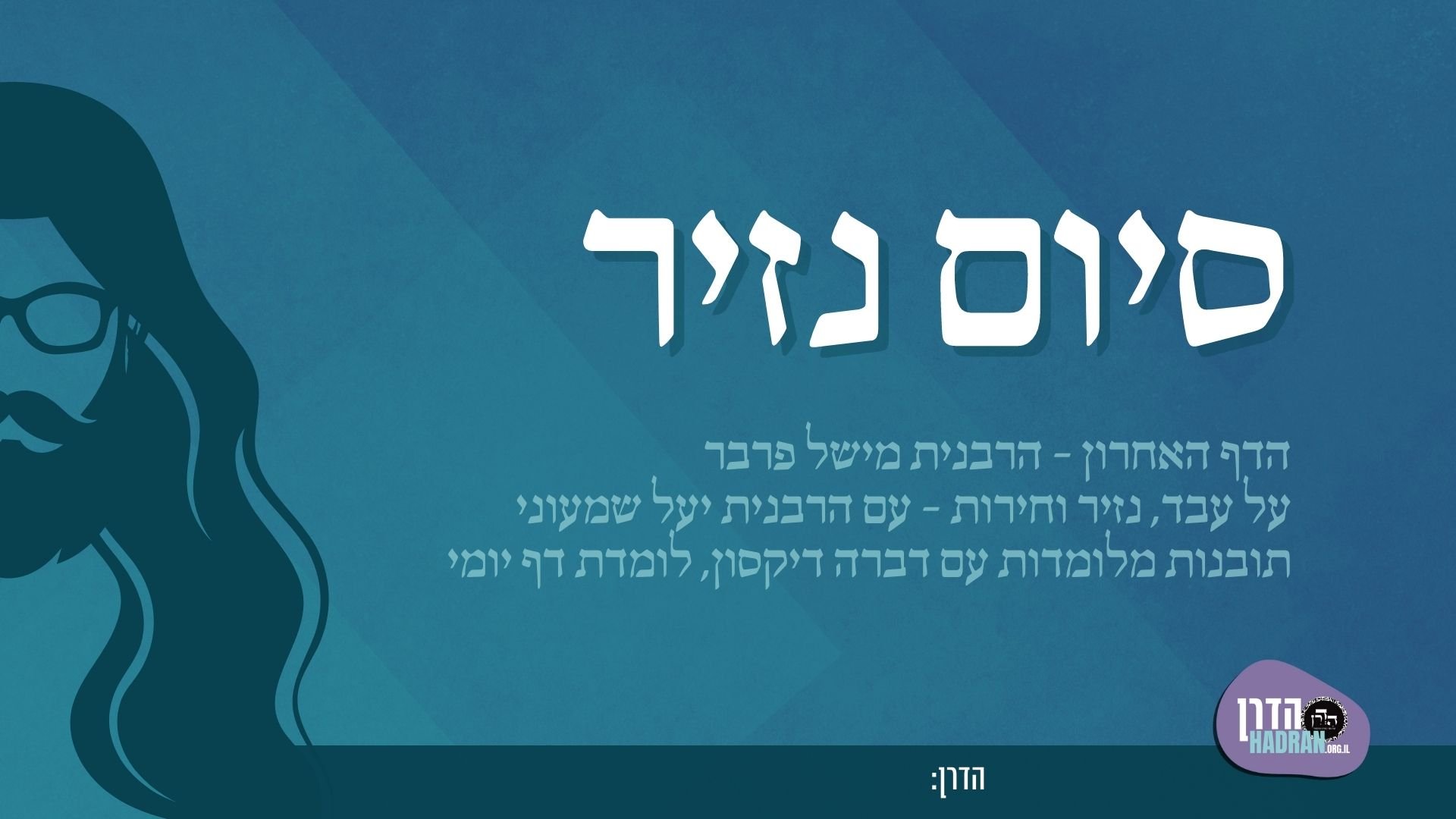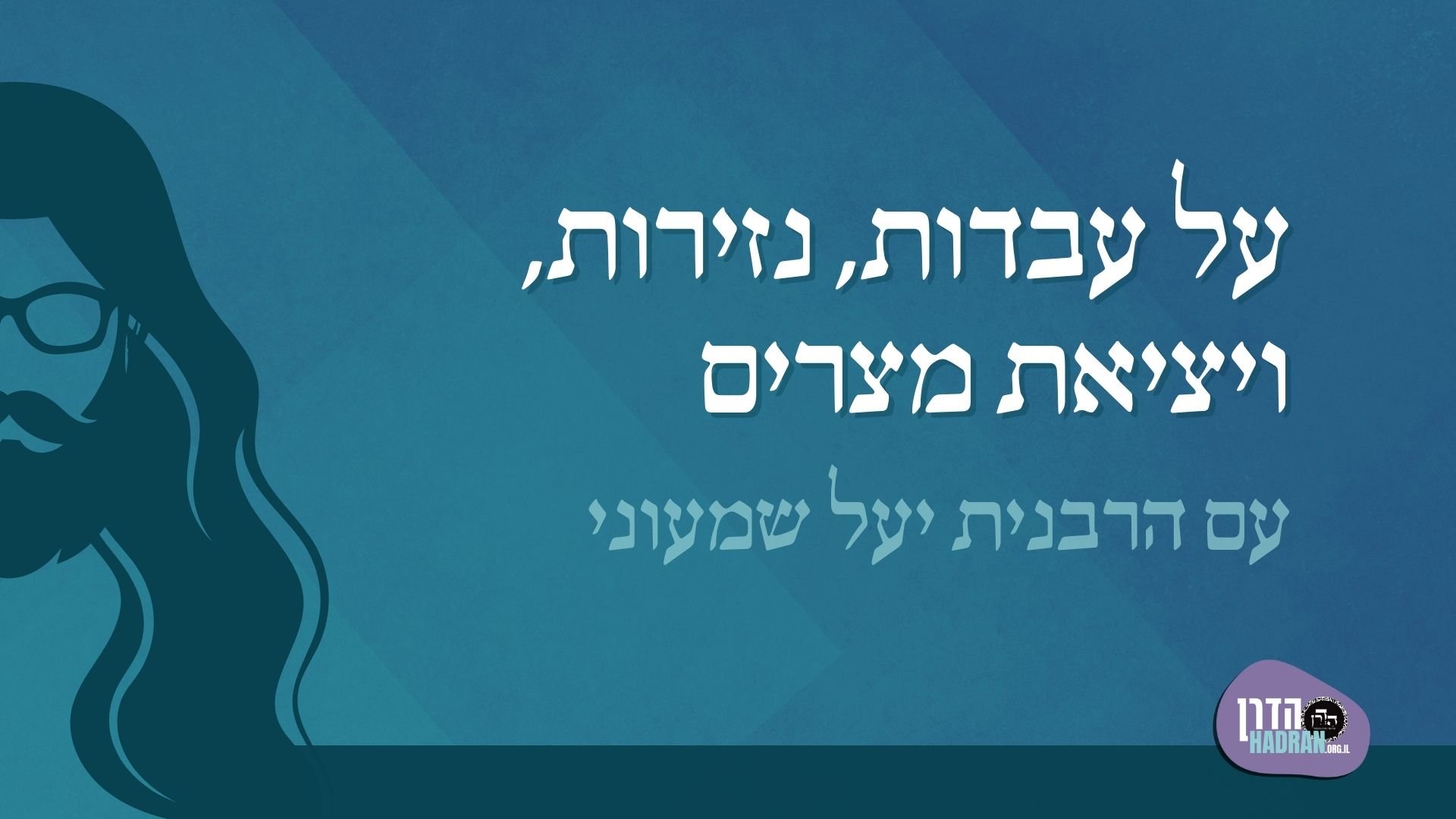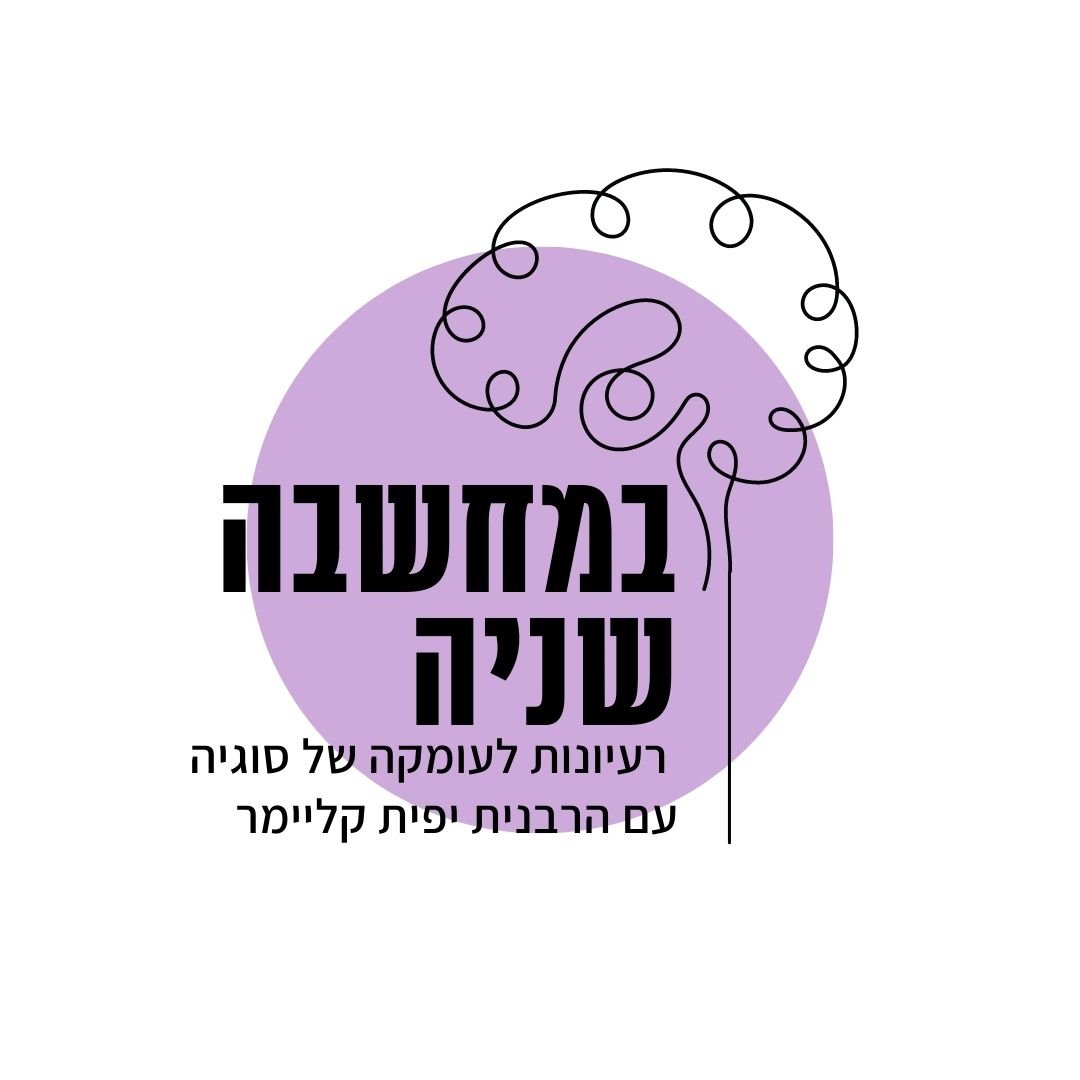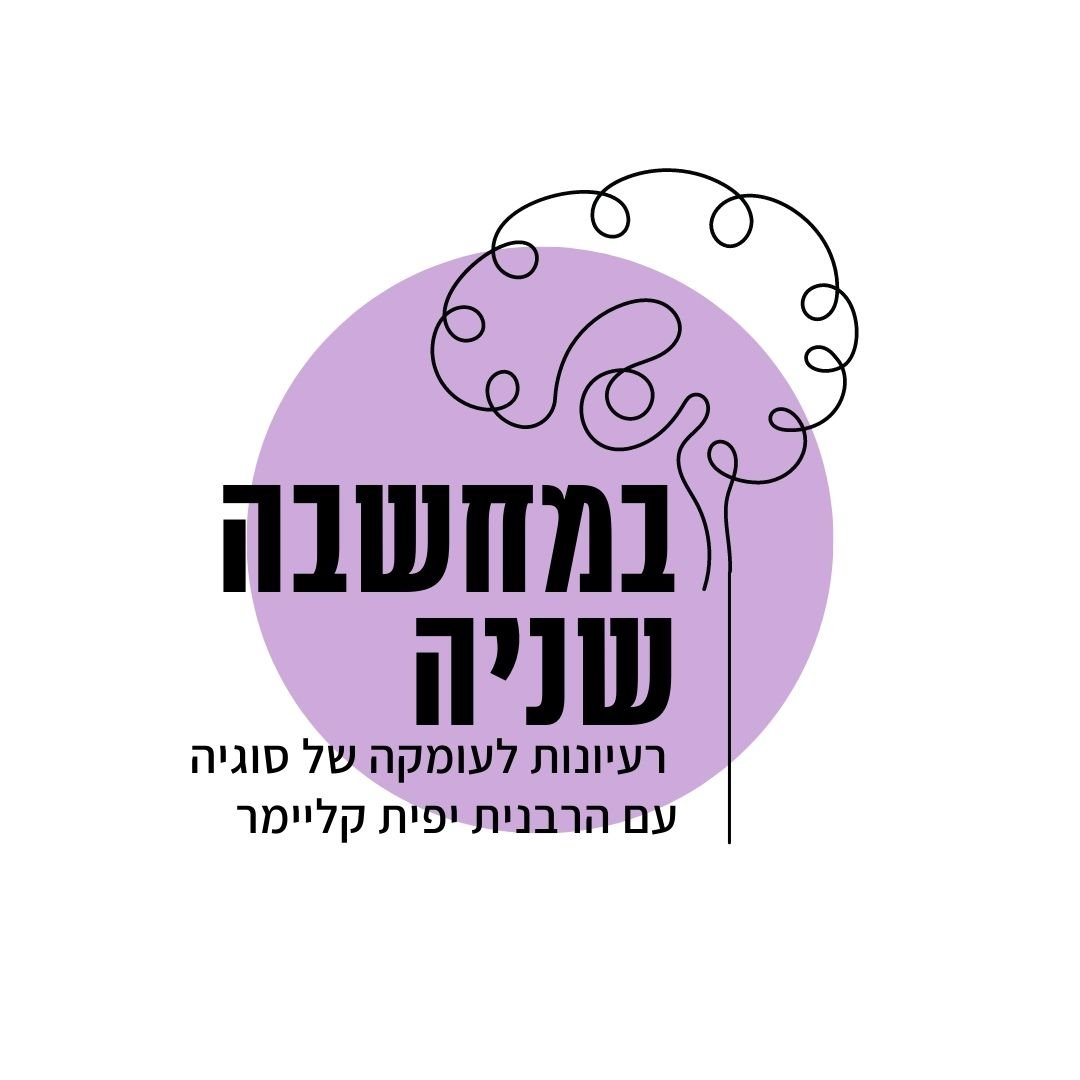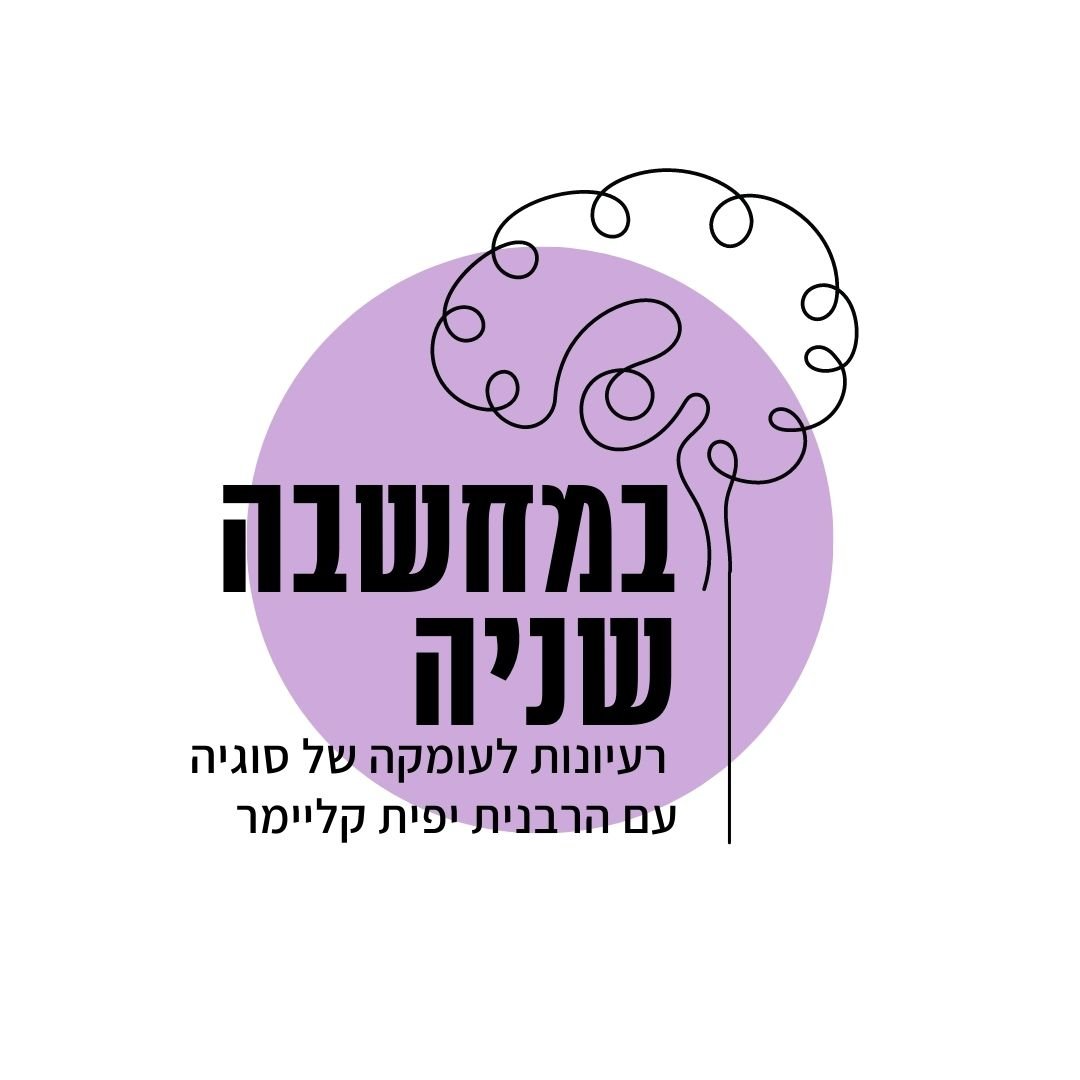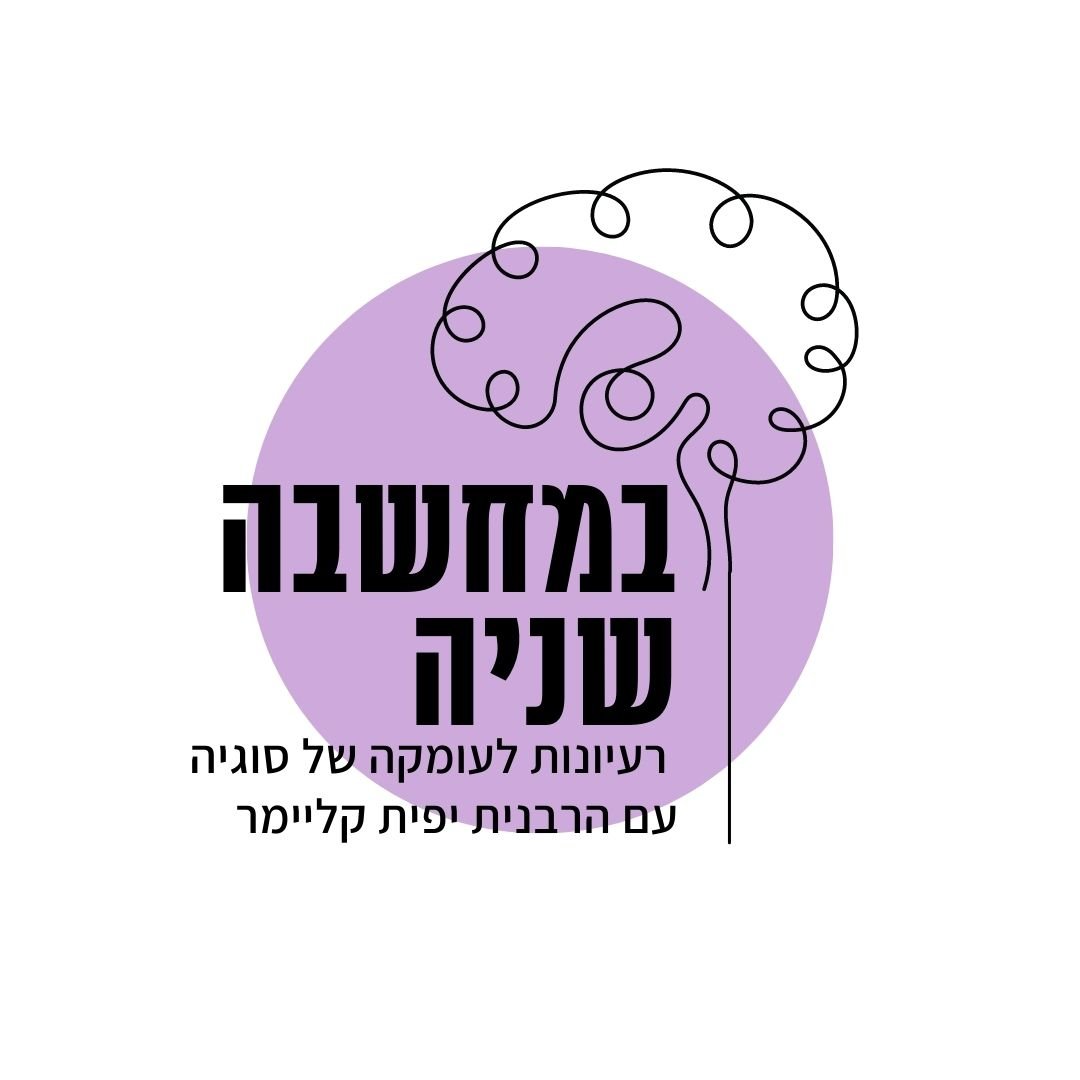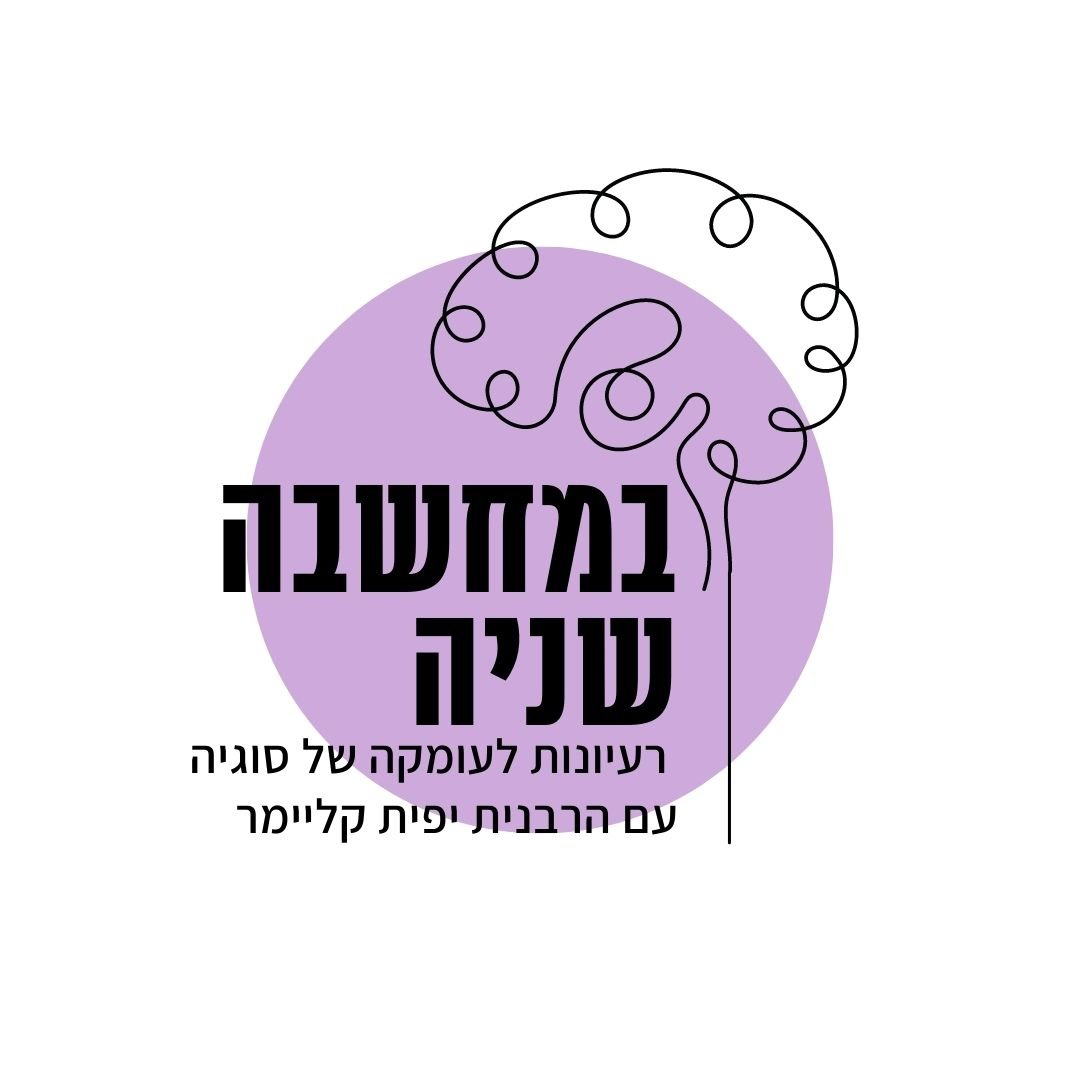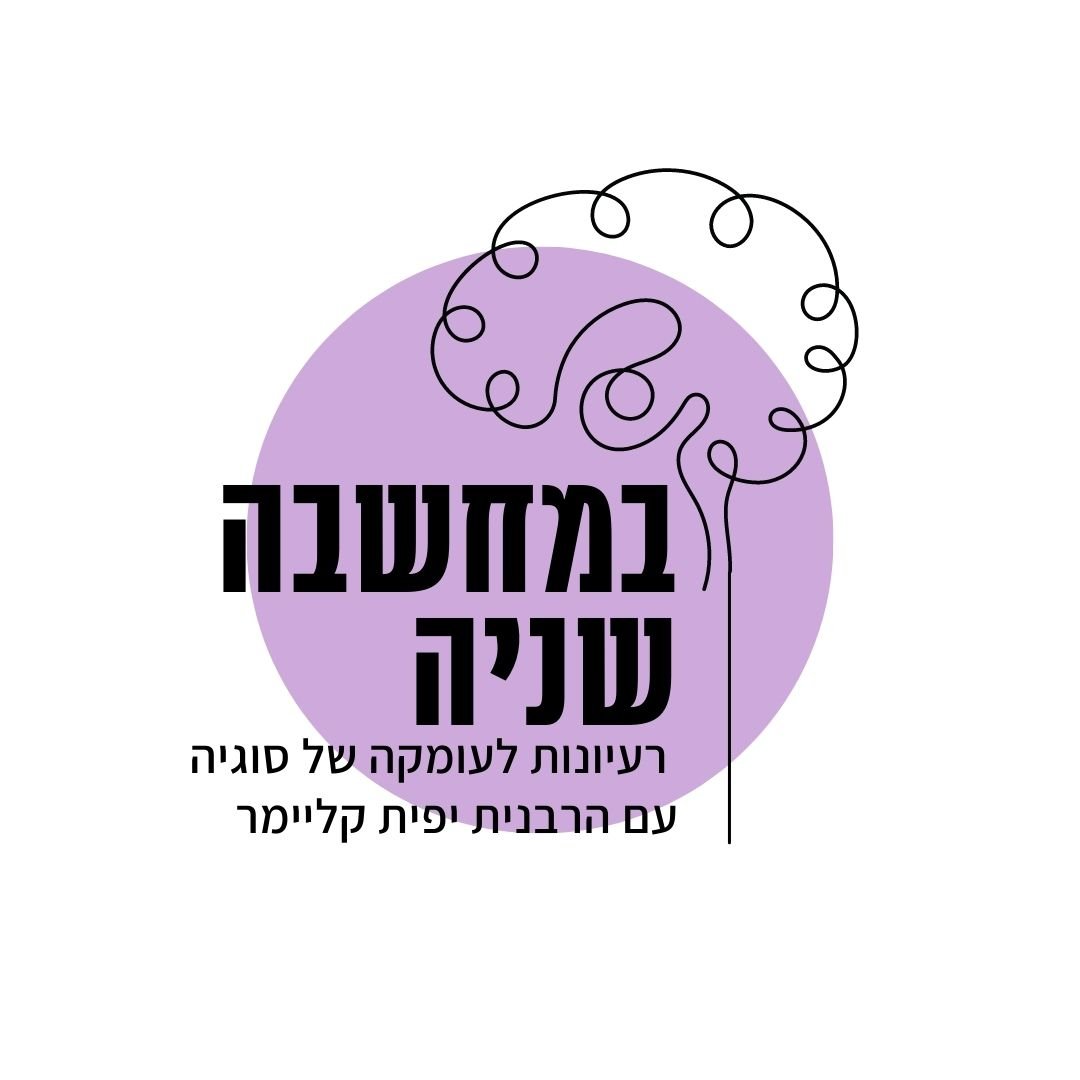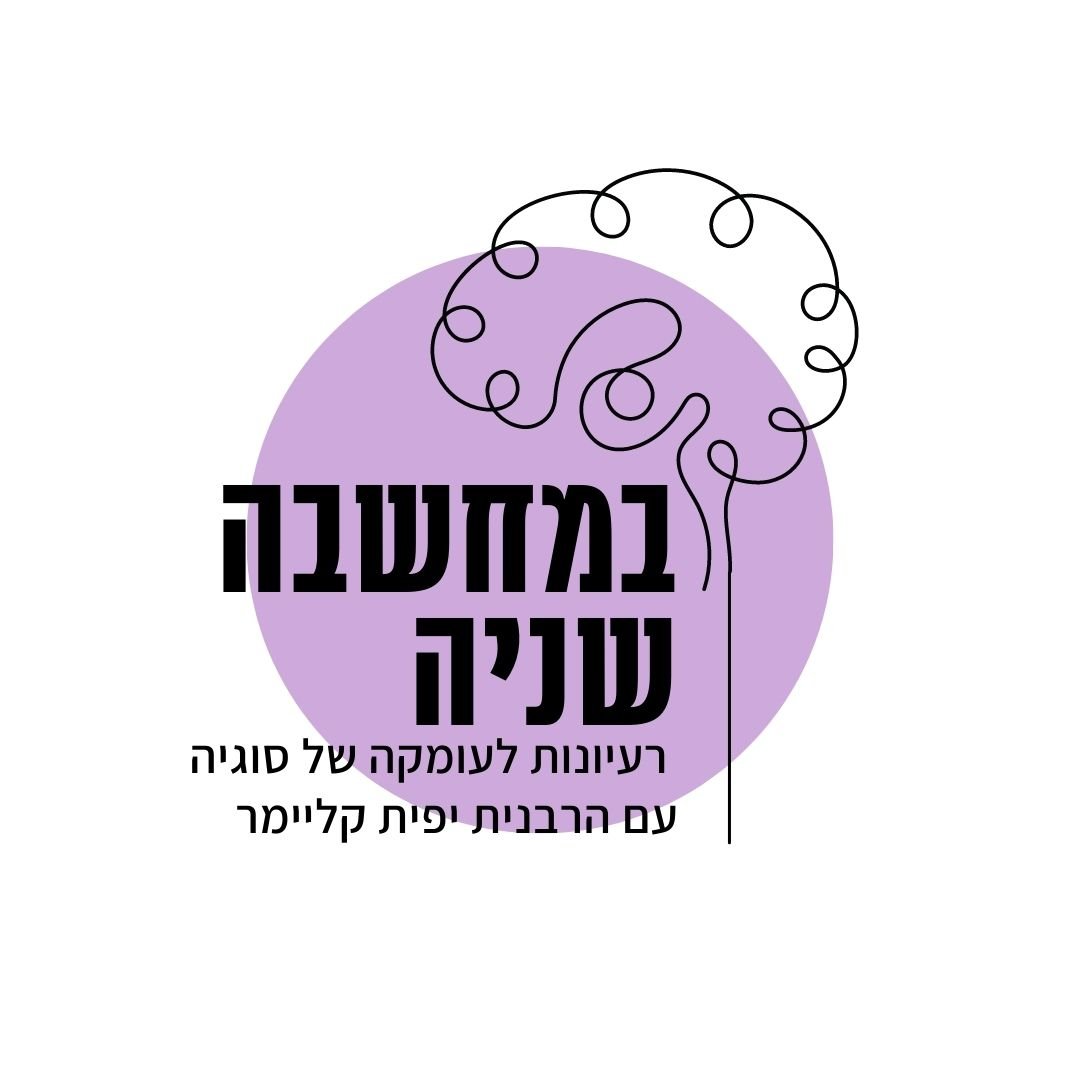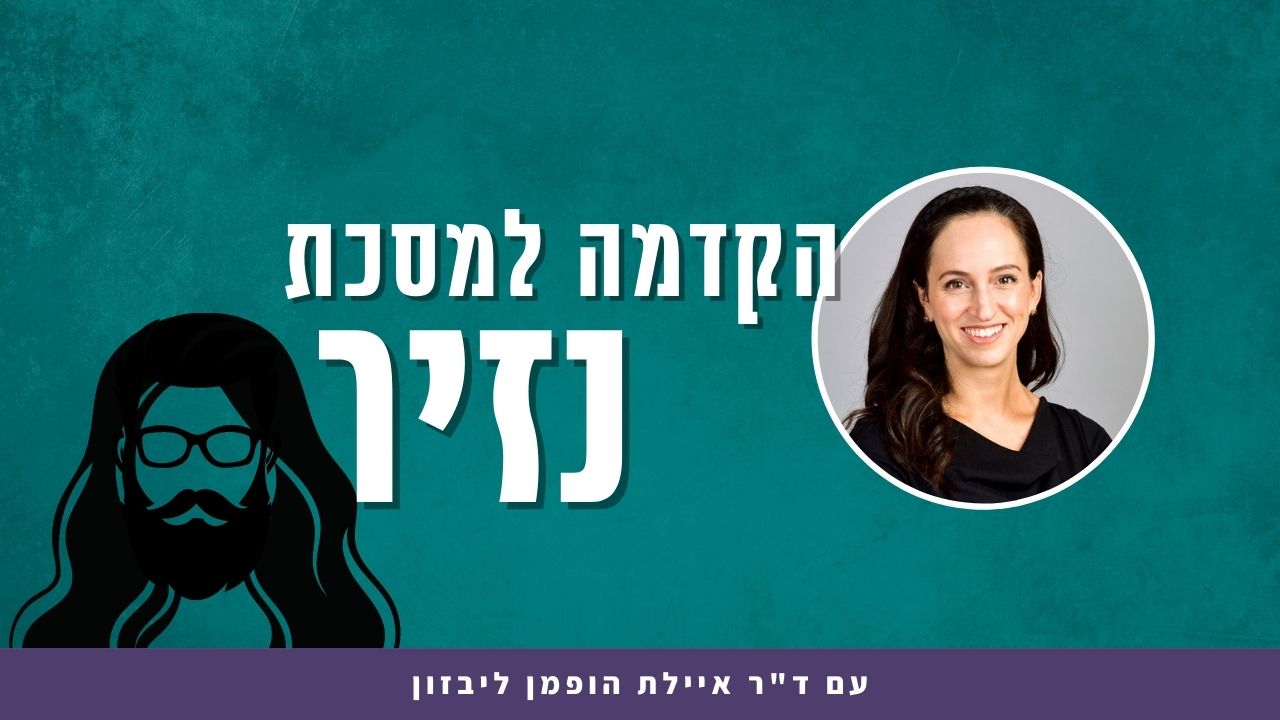נזיר מד
יָכוֹל לֹא יִטַּמֵּא לַשִּׁדְרָה וְלַגּוּלְגּוֹלֶת וּלְרוֹב בִּנְיָינוֹ וּלְרוֹב מִנְיָינוֹ שֶׁל אֲחֵרִים. אָמַרְתָּ: מָה אֲחוֹתוֹ מְיוּחֶדֶת שֶׁגּוּפָה תָּלוּי בּוֹ, וּמִיטַּמֵּא לַשִּׁדְרָה וְלַגּוּלְגּוֹלֶת וּלְרוֹב בִּנְיָינָהּ וּלְרוֹב מִנְיָינָהּ, אַף כֹּל שֶׁגּוּפוֹ תָּלוּי בּוֹ — מִיטַּמֵּא לַשִּׁדְרָה וְלַגּוּלְגּוֹלֶת וּלְרוֹב בִּנְיָינוֹ וּלְרוֹב מִנְיָינוֹ.
One might have thought that he may not become impure to bury a spine, or for a skull, or to bury most of the skeleton or most of the number of bones of other relatives for whom a priest becomes impure. You say in response: Just as his sister is unique in that her body is dependent upon the brother tending to her burial, and he becomes impure to bury a spine, or to bury a skull, or to bury most of her skeleton, or to bury most of her number of bones, so too, with regard to every person whose body is dependent upon him, i.e., his other close relatives, he becomes impure to bury a spine, or to bury a skull, or to bury most of his skeleton, or to bury most of his number of bones. This presents a difficulty for the opinion of Rav that a priest may not become impure to bury any relative whose head has been severed.
הָהִיא נָמֵי רַבִּי יְהוּדָה הִיא. וְרַב דְּאָמַר כִּי הַאי תַּנָּא דְּתַנְיָא: מַעֲשֶׂה שֶׁמֵּת אָבִיו שֶׁל רַבִּי יִצְחָק בְּגִינְזַק, וּבָאוּ וְהוֹדִיעוּהוּ לְאַחַר שָׁלֹשׁ שָׁנִים, וּבָא וְשָׁאַל אֶת רַבִּי יְהוֹשֻׁעַ בֶּן אֱלִישָׁע וְאַרְבָּעָה זְקֵנִים [שֶׁעִמּוֹ],
The Gemara answers: That baraita also represents the opinion of Rabbi Yehuda. And Rav stated his opinion in accordance with the opinion of this tanna, as it is taught in a baraita: An incident occurred in which the father of Rabbi Yitzḥak the priest died in Ginzak, and they came and informed him after three years had passed, and he came and asked Rabbi Yehoshua ben Elisha and four Elders who were with him whether he was permitted to become ritually impure by transferring his father’s remains to his ancestral grave, as was the custom.
וְאָמְרוּ: ״לְאָבִיו״ — בִּזְמַן שֶׁהוּא שָׁלֵם, וְלֹא בִּזְמַן שֶׁהוּא חָסֵר.
And they said to Rabbi Yitzḥak that the verse states: “For his father” (Leviticus 21:2), which indicates a priest may become impure only when his father is whole, and not when he is lacking. After three years the father’s body was certainly not whole, and therefore his son, a priest, was no longer permitted to become impure to bury him.
מַתְנִי׳ שְׁלֹשָׁה מִינִין אֲסוּרִין בַּנָּזִיר: הַטּוּמְאָה, וְהַתִּגְלַחַת, וְהַיּוֹצֵא מִן הַגֶּפֶן. חוֹמֶר בַּטּוּמְאָה וּבַתִּגְלַחַת מִבַּיּוֹצֵא מִן הַגֶּפֶן, שֶׁהַטּוּמְאָה וְהַתִּגְלַחַת — סוֹתְרִין, וְהַיּוֹצֵא מִן הַגֶּפֶן — אֵינוֹ סוֹתֵר.
MISHNA: Three types of actions are prohibited for a nazirite: Contracting ritual impurity imparted by a corpse, and shaving his hair, and eating or drinking any substances that emerge from the vine. There is a greater stricture with regard to the prohibitions of impurity and shaving than that of substances that emerge from the vine, as impurity and shaving negate his naziriteship, i.e., he must add thirty days to his term of naziriteship or start it afresh. But if he eats or drinks that which emerges from the vine, this does not negate his naziriteship.
חוֹמֶר בַּיּוֹצֵא מִן הַגֶּפֶן מִבַּטּוּמְאָה וּבַתִּגְלַחַת, שֶׁהַיּוֹצֵא מִן הַגֶּפֶן לֹא הוּתַּר מִכְּלָלוֹ, וְטוּמְאָה וְתִגְלַחַת הוּתְּרוּ מִכְּלָלָן בְּתִגְלַחַת מִצְוָה וּבְמֵת מִצְוָה.
Conversely, there is a greater stricture with regard to substances that emerge from the vine than with regard to impurity and shaving, as in the case of products that emerge from the vine nothing is exempted from its general prohibition in certain circumstances, i.e., there are no exceptions. But with regard to impurity and shaving certain cases are exempted from their general prohibition. For example, there are the cases of obligatory shaving, e.g., a leper who was purified during his naziriteship, and of a corpse with no one to bury it [met mitzva]. A nazirite may tend to the burial of a met mitzva, despite the fact that he will thereby contract ritual impurity from a corpse.
וְחוֹמֶר בַּטּוּמְאָה מִבַּתִּגְלַחַת, שֶׁהַטּוּמְאָה סוֹתֶרֶת אֶת הַכֹּל, וְחַיָּיבִין עָלֶיהָ קׇרְבָּן. וְתִגְלַחַת אֵינָהּ סוֹתֶרֶת אֶלָּא שְׁלֹשִׁים, וְאֵין חַיָּיבִין עָלֶיהָ קׇרְבָּן.
The mishna adds: And there is a greater stricture with regard to impurity than with regard to shaving, as a nazirite’s impurity negates all his days of naziriteship and begins his term afresh, and he is liable to bring an offering for it, before starting his new term of naziriteship. But shaving negates only thirty days at most, and he is not liable to bring an offering for it.
גְּמָ׳ וְטוּמְאָה לֹא תּוּתַּר מִכְּלָלָהּ, קַל וָחוֹמֶר מִיַּיִן: וּמָה יַיִן שֶׁאֵינוֹ סוֹתֵר לֹא הוּתַּר מִכְּלָלוֹ, טוּמְאָה שֶׁסּוֹתֶרֶת — אֵינוֹ דִּין שֶׁלֹּא תּוּתַּר מִכְּלָלָהּ?
GEMARA: The Gemara asks: And perhaps one should say that the ritual impurity of a nazirite should not be exempted from its general prohibition even for a met mitzva, due to an a fortiori inference from the prohibition of wine: And if wine, whose prohibition is lighter, as it does not negate his naziriteship, is nevertheless not exempted from its general prohibition, then with regard to impurity, which is stringent, as it does negate his naziriteship, is it not logical that it should not be exempted from its general prohibition?
תַּלְמוּד לוֹמַר: ״לְאָבִיו וּלְאִמּוֹ לֹא יִטַּמָּא״. לְאָבִיו וּלְאִמּוֹ לֹא יִטַּמָּא, אֲבָל מִיטַּמֵּא הוּא לְמֵת מִצְוָה.
The Gemara answers: Therefore, the verse states, in addition to the general prohibition: “He shall not come near to a dead body” (Numbers 6:6), that: “For his father or his mother, for his brother or for his sister, he shall not become impure when they die” (Numbers 6:7). This verse teaches that it is to bury his father or for his mother that he may not become impure; however, he becomes impure to bury a met mitzva.
וְיַיִן יוּתַּר מִכְּלָלוֹ, קַל וָחוֹמֶר מִטּוּמְאָה: מַה טוּמְאָה שֶׁהִיא סוֹתֶרֶת — הוּתְּרָה מִכְּלָלָהּ, יַיִן שֶׁאֵינוֹ סוֹתֵר — אֵינוֹ דִּין שֶׁיּוּתַּר מִכְּלָלוֹ? אָמַר קְרָא: ״מִיַּיִן וְשֵׁכָר יַזִּיר״, לֶאֱסוֹר יֵין מִצְוָה כְּיֵין רְשׁוּת.
The Gemara suggests: If so, one can make the reverse argument. And let wine be exempted from its general prohibition due to an a fortiori inference from the prohibition of impurity: If impurity, which negates naziriteship, is exempted from its general prohibition; with regard to wine, which does not negate naziriteship, is it not logical that it should be exempted from its general prohibition for the sake of a mitzva, e.g., for one who took an oath to drink wine? The Gemara answers: It is for this reason that the verse states with regard to a nazirite: “He shall abstain from wine and strong drink” (Numbers 6:3). The emphasis on the words “wine and strong drink” comes to prohibit obligatory wine like optional wine.
וְיַיִן יִסְתּוֹר אֶת הַכֹּל, קַל וָחוֹמֶר מִטּוּמְאָה: מָה טוּמְאָה שֶׁהוּתְּרָה מִכְּלָלָהּ — סוֹתֶרֶת אֶת הַכֹּל, יַיִן שֶׁלֹּא הוּתַּר מִכְּלָלוֹ — לֹא כׇּל שֶׁכֵּן שֶׁיִּסְתּוֹר?
The Gemara further asks: And let wine negate all his days of naziriteship, due to an a fortiori inference from the prohibition of impurity: If impurity, which is exempted from its general prohibition, negates all of his naziriteship, then with regard to wine, which is not exempted from its general prohibition, is it not all the more so logical that it should negate his entire naziriteship?
אָמַר קְרָא: ״וְהַיָּמִים הָרִאשׁוֹנִים יִפְּלוּ כִּי טָמֵא נִזְרוֹ״, טוּמְאָה סוֹתֶרֶת וְאֵין הַיַּיִן סוֹתֵר.
The Gemara answers: Therefore, the verse states: “But the former days shall be void, for his naziriteship was rendered impure” (Numbers 6:12). The phrase “for his naziriteship was rendered impure” is apparently redundant, as it is clear from the context that the verse is referring to an impure nazirite. Rather, this teaches that only impurity negates his naziriteship, and wine does not negate it.
וְהַתִּגְלַחַת תִּסְתּוֹר אֶת הַכֹּל, קַל וָחוֹמֶר מִטּוּמְאָה: וּמָה טוּמְאָה שֶׁלֹּא עָשׂוּ בָּהּ מְטַמֵּא כַּמִּיטַּמֵּא — סוֹתֶרֶת אֶת הַכֹּל, תִּגְלַחַת, שֶׁעָשׂוּ בָּהּ מְגַלֵּחַ כַּמִּתְגַּלֵּחַ — אֵינוֹ דִּין שֶׁתִּסְתּוֹר אֶת הַכֹּל?
The Gemara continues to ask along the same lines: And let shaving negate all his naziriteship, due to an a fortiori inference from the prohibition of impurity: And if in the case of impurity, in which the one who renders another impure is not like the one who becomes impure, i.e., one who renders a nazirite ritually impure does not perform a transgression, as only the nazirite who contracts the impurity has performed a transgression, impurity nevertheless negates all his naziriteship; then with regard to shaving, in which the one who shaves is like the one who is shaved, as someone who shaves a nazirite also performs a transgression, is it not logical that it should negate all his naziriteship?
אָמַר קְרָא: ״וְהַיָּמִים הָרִאשׁוֹנִים יִפְּלוּ כִּי טָמֵא נִזְרוֹ״, טוּמְאָה סוֹתֶרֶת אֶת הַכֹּל, וְאֵין תִּגְלַחַת סוֹתֶרֶת אֶת הַכֹּל.
The Gemara answers: Therefore, the verse states: “But the former days shall be void, for his naziriteship was rendered impure” (Numbers 6:12). The emphasis on the phrase “for his naziriteship was rendered impure” teaches that impurity negates all, and shaving does not negate all.
וְטוּמְאָה נַעֲשֶׂה בָּהּ מְטַמֵּא כַּמִּיטַּמֵּא, קַל וָחוֹמֶר מִתִּגְלַחַת: וּמָה תִּגְלַחַת שֶׁאֵינָהּ סוֹתֶרֶת אֶלָּא שְׁלֹשִׁים — עָשָׂה בָּהּ מְגַלֵּחַ כַּמִּתְגַּלֵּחַ, טוּמְאָה, שֶׁהִיא סוֹתֶרֶת אֶת הַכֹּל — אֵינוֹ דִּין שֶׁנַּעֲשֶׂה בָּהּ מְטַמֵּא כַּמִּיטַּמֵּא?
The Gemara suggests: But in that case, one can argue the opposite: With regard to impurity, let the one who renders another impure be like the one who becomes impure, due to an a fortiori inference from the prohibition of shaving: If in the case of shaving, which negates only thirty days, the one who shaves is like the one who is shaved; then, with regard to impurity, which negates all, is it not logical that the one who renders another impure should be like the one who becomes impure?
אָמַר קְרָא: ״וְטִמֵּא רֹאשׁ נִזְרוֹ״, לִמְטַמֵּא רֹאשׁ נִזְרוֹ.
The Gemara responds: Therefore, the verse states: “And if any man dies very suddenly beside him, and he renders impure his consecrated head” (Numbers 6:9). This teaches that the prohibition of impurity applies only to one who renders impure his consecrated head, but not to others who render him impure.
וְתִגְלַחַת לֹא נַעֲשֶׂה בָּהּ מְגַלֵּחַ כַּמִּתְגַּלֵּחַ, קַל וָחוֹמֶר מִטּוּמְאָה: וּמָה טוּמְאָה, שֶׁהִיא סוֹתֶרֶת אֶת הַכֹּל — לֹא עָשׂוּ בָּהּ מְטַמֵּא כַּמִּיטַּמֵּא, תִּגְלַחַת, שֶׁאֵינָהּ סוֹתֶרֶת אֶלָּא שְׁלֹשִׁים יוֹם — לֹא כׇּל שֶׁכֵּן שֶׁלֹּא נַעֲשֶׂה מְגַלֵּחַ כַּמִּתְגַּלֵּחַ?
The Gemara suggests: But if so, one can say the reverse: And with regard to shaving, let the one who shaves not be like the one who is shaved, due to an a fortiori inference from the prohibition of impurity: And if in the case of impurity, which is stringent in that it negates all his naziriteship, the one who renders another impure is nevertheless not like the one who becomes impure; then with regard to shaving, which negates only thirty days, is it not all the more so logical that one who shaves should not be like the one who is shaved?
אָמַר קְרָא: ״תַּעַר לֹא יַעֲבוֹר עַל רֹאשׁוֹ״, קְרִי בֵּיהּ: לֹא יַעֲבוֹר הוּא, וְלֹא יַעֲבוֹר לְאַחֵר.
The Gemara answers: Therefore, the verse states: “No razor shall come upon his head” (Numbers 6:5). Since the verse is written in the passive, read into the verse that he, the nazirite himself, shall not cause a razor to come upon his head; and read the verse as also referring to any other person, who shall not cause a razor to come upon the nazirite’s head.
וְתִגְלַחַת לֹא תּוּתַּר מִכְּלָלָהּ, קַל וָחוֹמֶר מִיַּיִן: וּמָה יַיִן שֶׁאֵינוֹ סוֹתֵר — לֹא הוּתַּר מִכְּלָלוֹ, תִּגְלַחַת שֶׁסּוֹתֶרֶת — אֵינוֹ דִּין שֶׁלֹּא תּוּתַּר מִכְּלָלָהּ? אָמַר רַחֲמָנָא: ״רֹאשׁוֹ״, וְאָמַר רַחֲמָנָא: ״זְקָנוֹ״.
The Gemara asks: And let shaving not be exempted from its general prohibition in the case of a leper, due to an a fortiori inference from the prohibition of wine: And if wine, which does not negate naziriteship, is not exempted from its general prohibition; then, with regard to shaving, which does negate naziriteship, is it not logical that it should not be exempted from its general prohibition? The Gemara answers: Therefore, the Merciful One states with regard to a leper: “That he shall shave all his hair,” and adds: “Off his head” (Leviticus 14:9). And the Merciful One further states: “And his beard,” which teaches that he shaves despite the prohibition of naziriteship.
וְתִגְלַחַת לֹא תִּסְתּוֹר כְּלָל, קַל וָחוֹמֶר מִיַּיִן: וּמָה יַיִן שֶׁלֹּא הוּתַּר מִכְּלָלוֹ — אֵינוֹ סוֹתֵר, תִּגְלַחַת שֶׁהוּתְּרָה מִכְּלָלָהּ — אֵינוֹ דִּין שֶׁלֹּא תִּסְתּוֹר? בָּעִינַן גִּידּוּל שֵׂעָר, וְהָא לֵיכָּא.
The Gemara proposes the reverse argument: And let shaving not negate naziriteship at all, due to an a fortiori inference from the prohibition of wine: And if wine, which is not exempted from its general prohibition, does not negate naziriteship; then with regard to shaving, which is exempted from its general prohibition, is it not logical that it should not negate naziriteship? The Gemara answers: We require hair growth, and there is none at that point. Consequently, the nazirite must necessarily wait until his hair is of sufficient length to shave.
וְיַיִן יִסְתּוֹר שְׁלֹשִׁים יוֹם, קַל וָחוֹמֶר מִתִּגְלַחַת: וּמָה תִּגְלַחַת שֶׁהוּתְּרָה מִכְּלָלָהּ — סוֹתֶרֶת, יַיִן, שֶׁלֹּא הוּתַּר מִכְּלָלוֹ — אֵינוֹ דִּין שֶׁיִּסְתּוֹר? מִידֵּי הוּא טַעְמָא אֶלָּא מִשּׁוּם גִּידּוּל שֵׂעָר, גַּבֵּי יַיִן הָא קָאֵים שְׂעָרוֹ.
The Gemara asks: And let wine negate thirty days, due to an a fortiori inference from the prohibition of shaving: And if shaving, which is exempted from its general prohibition, nevertheless negates thirty days; then with regard to wine, which is not exempted from its general prohibition, is it not logical that it should negate thirty days? The Gemara answers: As that reason for the halakha that shaving causes a nazirite to negate thirty days is only due to hair growth, so that he has sufficient hair at the end of his naziriteship to shave, the halakha does not apply with regard to wine, since his hair remains in place. The nazirite himself has not changed, so the fact that he has drunk wine is not sufficient reason to negate any time.
מַתְנִי׳ תִּגְלַחַת טוּמְאָה כֵּיצַד? הָיָה מַזֶּה בַּשְּׁלִישִׁי וּבַשְּׁבִיעִי וּמְגַלֵּחַ בַּשְּׁבִיעִי, וּמֵבִיא קׇרְבְּנוֹתָיו בַּשְּׁמִינִי. וְאִם גִּילַּח בַּשְּׁמִינִי — מֵבִיא קׇרְבְּנוֹתָיו בּוֹ בַּיּוֹם, דִּבְרֵי רַבִּי עֲקִיבָא. אָמַר לוֹ רַבִּי טַרְפוֹן: מָה בֵּין זֶה לִמְצוֹרָע?
MISHNA: With regard to the shaving of ritual impurity performed by a nazirite who became impure during his naziriteship, how is it performed? The priest would sprinkle the waters of purification on him on the third and the seventh days after he contracted his impurity, as performed for all those who contracted impurity imparted by a corpse. And he shaves his hair on the seventh day and brings his offerings on the eighth day. And if he shaved on the eighth day he brings his offerings on that day, this is the statement of Rabbi Akiva. Rabbi Tarfon said to him: What is the difference between this ritual and that of a leper? A leper also shaves on the seventh day and sacrifices his offerings on the eighth. However, if a leper shaves on the eighth day he brings his offerings on the ninth day, not on the day of his shaving.
אָמַר לוֹ: זֶה טׇהֳרָתוֹ תְּלוּיָה בְּיָמָיו, וּמְצוֹרָע טׇהֳרָתוֹ תְּלוּיָה בְּתִגְלַחְתּוֹ. וְאֵינוֹ מֵבִיא קׇרְבָּן אֶלָּא אִם כֵּן הָיָה מְעוֹרַב שֶׁמֶשׁ.
Rabbi Akiva said to him: The purification of this impure nazirite depends on his days, as he immerses on the seventh day like all those who contract impurity imparted by a corpse, which means he is already ritually pure on the eighth day. But with regard to a leper, his purification depends on his shaving. Any immersion performed earlier is of no account, and must be repeated. And a leper brings his offering only if the sun has set following his immersion. Since offerings are not sacrificed at night, the bringing of his offering is postponed until the following day.
גְּמָ׳ קַיבְּלַהּ מִינֵּיהּ אוֹ לָא? תָּא שְׁמַע: דְּתָנֵי הִלֵּל: גִּילַּח בַּשְּׁמִינִי — מֵבִיא קׇרְבְּנוֹתָיו בַּתְּשִׁיעִי. וְאִי סָלְקָא דַּעְתָּךְ קַיבְּלַהּ מִינֵּיהּ, לַיְתֵי קׇרְבְּנוֹתָיו בַּשְּׁמִינִי!
GEMARA: The Gemara asks: Did Rabbi Tarfon accept this claim from Rabbi Akiva, or did he not accept it? Come and hear an answer to this from that which Hillel the amora taught: If a nazirite shaved on the eighth day, he brings his offerings on the ninth. And if it should enter your mind that Rabbi Tarfon accepted the claim from Rabbi Akiva, let the nazirite bring his offerings on the eighth day itself, in accordance with the opinion of Rabbi Akiva. Rather, this baraita is certainly in accordance with the opinion of Rabbi Tarfon, who remains steadfast in his rejection of Rabbi Akiva’s opinion.
אָמַר רָבָא, לָא קַשְׁיָא: הָא — דְּטָבַל בַּשְּׁבִיעִי, הָא — דְּלֹא טָבַל בַּשְּׁבִיעִי.
Rava said: This is not difficult, i.e., it is possible that Rabbi Tarfon accepted Rabbi Akiva’s opinion with regard to a nazirite who shaved on the eighth day, and there is a difference between the two statements: In this case of the mishna, it is referring to a nazirite who immersed on the seventh day, which means that he is entirely pure on the eighth and can therefore bring his offerings on the same day after shaving. By contrast, in that case of Hillel’s baraita, it is referring to one who did not immerse on the seventh. Consequently, as he immerses on the eighth day he may sacrifice his offerings only after sunset, on the ninth day.
אָמַר אַבָּיֵי: אַשְׁכַּחְתִּינְהוּ לְחַבְרֵיהּ דְּרַב נָתָן בַּר הוֹשַׁעְיָא דְּיָתְבִין וְקָאָמְרִין: ״וּבָא לִפְנֵי ה׳ אֶל פֶּתַח אֹהֶל מוֹעֵד וּנְתָנָם אֶל הַכֹּהֵן״, אֵימָתַי הוּא [בָּא]? בִּזְמַן שֶׁהוּא טָבַל וְעָשָׂה הֶעֱרֵב שֶׁמֶשׁ — אִין, לֹא טָבַל וְעָשָׂה הֶעֱרֵב שֶׁמֶשׁ — לָא.
§ Abaye said: I encountered the members of the assembly of Rav Natan bar Hoshaya sitting and saying the following: The verse states with regard to a man who experiences a gonorrhea-like discharge [zav] who immerses on the seventh day of his purification: “And on the eighth day he shall take for himself two turtledoves or two young pigeons and come before the Lord to the entrance of the Tent of Meeting and give them to the priest” (Leviticus 15:14). When does he come to the courtyard to sacrifice his offerings? Only when he has immersed on the seventh day and performed the requirement to wait until sunset. In that case, yes, he brings his offerings, but if he has not immersed and has not performed the requirement to wait until sunset, no, he may not enter the courtyard.
אַלְמָא קָסָבַר טְבוּל יוֹם שֶׁל זָב — כְּזָב דָּמֵי.
Apparently, this tanna maintains that one who immersed himself that day to release himself from the status of a zav is considered like an actual zav. Just as a zav is prohibited from entering the Levite camp in his state of impurity, the same applies to him on the day of his immersion, as he must wait until after sunset, when he is entirely pure.
אָמֵינָא לְהוֹן אֲנָא: אֶלָּא מֵעַתָּה גַּבֵּי נָזִיר טָמֵא נָמֵי, דִּכְתִיב: ״(וְהֵבִיא אוֹתָם) אֶל הַכֹּהֵן אֶל פֶּתַח אֹהֶל מוֹעֵד״. אֵימָתַי הוּא [בָּא] — בִּזְמַן שֶׁטָּבַל וְעָשָׂה הֶעֱרֵב שֶׁמֶשׁ.
Abaye adds: Upon hearing this, I said to those Sages: If that is so, with regard to an impure nazirite too, as it is written: And he shall bring them, referring to the verse “And on the eighth day he shall bring two turtledoves or two young pigeons to the priest, to the entrance of the Tent of Meeting” (Numbers 6:10), this can be explained in a similar manner: When does he come to the courtyard to sacrifice his offerings? When he has immersed himself and performed the requirement to wait until sunset.

